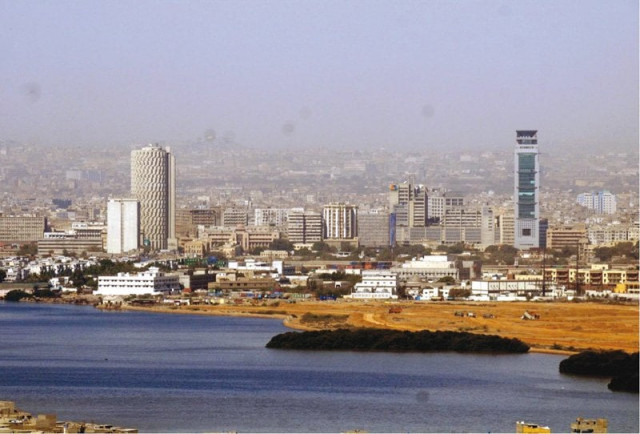Towards a shared vision of urban reform
A critical requirement is that the local government be well-placed to play the role of being the city's guardian

PHOTO: FARHAN ANWAR
A number of pathways, with multiple signposts, have to forge and converge on a mutually agreed vision to make a city government truly responsive to the needs of citizens and be capable of effectively addressing them.
For smart cities: Need for urban planning stressed
A critical requirement is that the local government be well-placed to play the role of being the city's guardian. The recent citizen-driven campaign of 'Fixit' in Karachi, starting with the demand of placing manhole covers, has evoked varying responses. There has been some criticism of sketching the profile of the chief minister on the roads. While the jury may be out on this aspect of the campaign, the fact that the demand for such a simple task has been directed towards the provincial tier of governance is not without merit.
Our city government or the office of the mayor has lost its role as guardians of the city. With regards to manhole covers, it is to be noted that the city's sole public water utility, the Karachi Water and Sewerage Board, is placed within the jurisdiction of the provincial government. Similar is the case with the solid waste sector and land use zoning and buildings regulation.
There are certain tasks in urban governance that are universally parked in the sphere of local governance and tied to the operational aspects are the important considerations of revenue generation. Our city government is losing here.
For smart cities: Need for urban planning stressed
Revenue generation is coupled with policy and decision-making control over urban services. The services may at times be outsourced but the policymaking and related aspects are placed at the government level.
It is also a given that urban planning be parked at the local government level. With this role comes the provision of powers - policy, administrative and financial - to ensure that urban planning guidelines and associated projects are implemented by the city government.
It is unfortunate that none of the city's master plans have been implemented -principal reason being that the city government has never been empowered to implement them. A number of factors explain this inability: Lack of control over critical policy and administrative mandates, land, financial autonomy - the list is long.
Another factor that is continuously debilitating the relevance and capacity of local government institutions is the rapidly increasing footprint of the informal sector and the associated parallel economy that is now thriving. To begin with, the informal sector's development was inevitable and even welcome as the government was failing to meet basic demands like housing and public transport, but over a period of time this sector has morphed into a power base with vested interests that is now completely unregulated. As a result, the already weakened local government institutions are finding further erosion of their mandate.
Regularising slums: Call for paradigm shift in urban planning
When a patient is chronically ill, his or her body parts, even those not directly affected, generally degrade. The local government institutions in Karachi have suffered a similar fate. It is sad and unfortunate that a city that serves as the economic power house of the country and is home to a vibrant, educated and highly talented civil society has to always look for presidential packages to fund its infrastructure and services development.
Generating a consensus among the critical political, business and trade, civil society stakeholders that is parked under a shared vision of an inclusive, prosperous and sustainable Karachi is critical to kick start a process of reform - the top reform objective being a viable role for the city government. It can be done and needs to be done if we want to entertain and nurture any hope of reverting this cycle of urban decay that presently engulfs Karachi.
The writer is an urban planner and runs a non-profit organisation based in Karachi city focusing on urban sustainability issues. He can be reached at fanwar@sustainableinitiatives.org.pk
Published in The Express Tribune, January 25th, 2016.



















COMMENTS
Comments are moderated and generally will be posted if they are on-topic and not abusive.
For more information, please see our Comments FAQ